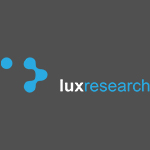 Venture capital investment groups invested some $550 million in startups developing smart home technology from 2005-2014, fueling an expansion in capabilities that now includes air quality monitoring and elderly care as well as home security, energy management and entertainment, Lux Research highlights in a new report.
Venture capital investment groups invested some $550 million in startups developing smart home technology from 2005-2014, fueling an expansion in capabilities that now includes air quality monitoring and elderly care as well as home security, energy management and entertainment, Lux Research highlights in a new report.
High costs – on the order of $6,700 for a fully enabled smart home – persist, however, constraining more widespread adoption. “Over the past 36 months, we have seen a dramatic shift in the number and capabilities of smart home devices but hardware cost reductions have not kept pace with this scale-up,” Alex Herceg, Lux Research analyst and lead author of “Smart Homes: Chasing the Elusive Dream,” was quoted in a press release.
Smart Home Adoption Survey
The increasing number of applications and complexity of smart home tech features makes it difficult to quantify their value and communicate that to prospective buyers, Herceg added.
Highlights of Lux’s research into the evolution, costs and benefits of various smart home technologies and applications included:
- Wink emerging as leading platform. Smart home platforms are still in early stages, and are working to add capabilities and partners. Wink has the most company partners overall (16) with many large companies, while Nest has the most start-up partners (18), as well as more capabilities than any of its peers.
- Temperature control still the only “killer app.” Companies offering smart thermostats form the most crowded smart home segment, offering energy savings between 12% and 30%, at a cost of $250 to $400. Whole home energy management costs more and offers only incremental gains.
- Smart apartments near mass adoption. Smart apartments are a relative blue ocean. While costs are high at up to $900/unit, a strong service-delivery model helps amortize high hardware costs, pushing toward mass adoption. This model has the potential to be replicated for connected homes.
Lux’s findings were similar to those of the Harris Poll, which conducted smart home research for Nielsen in which nearly 9 in 10 survey respondents believed smart home tech devices were too high-priced.


